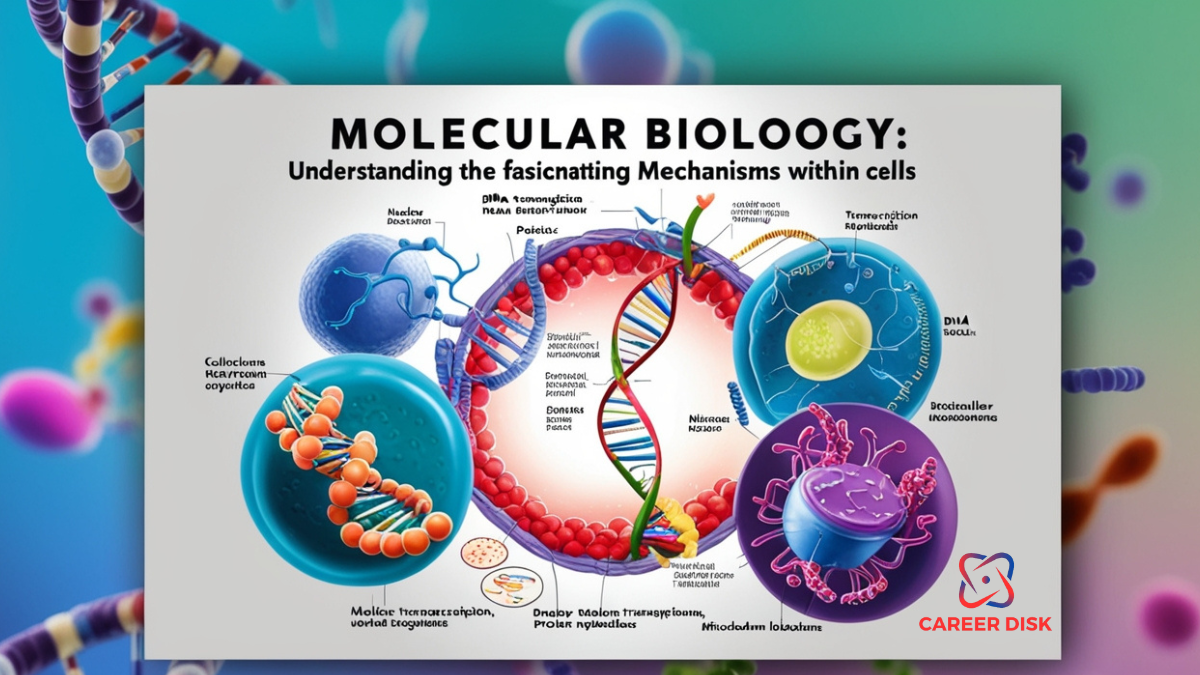
Mechanical engineering is one of the broadest engineering disciplines, often called the mother of all engineering disciplines. It offers various opportunities to specialize in; like robotics, aerospace, automotive engineering, HVAC (heating, ventilation, and air conditioning), biomechanics, and more.
Mechanical engineering requires an understanding of core areas including mechanics, dynamics, thermodynamics, materials science, design, structural analysis, and electricity. In addition, they make use of tools such as computer-aided design (CAD), computer-aided manufacturing (CAM), computer-aided engineering (CAE), and product lifecycle management to design, develop, build, and analyze various projects like manufacturing plants, industrial pieces of equipment, heating and cooling systems, transport systems, motor vehicles, aircraft, watercraft, robotics, medical devices, weapons, and others. Read more
It’s very important to understand what mechanical engineering entails before pursuing it as a career because you shouldn’t jump into something you ain’t sure of. So…,
Why Study Mechanical Engineering?
Studying mechanical engineering would help you acquire transferable skills which would be useful across a variety of industries and it would help you become more employable.
Aside from this, it would help you gain a broad range of knowledge since it’s a wide field, which has more impact on people’s daily lives, from manufacturing the clothes they wear to building the apps on their phones.
Mechanical engineering also provides a wide range of career opportunities depending on your interests and career ambitions, you can choose from a range of engineering sectors, including aerospace, automotive, biomedical, energy, manufacturing, and so on.
Studying mechanical engineering also creates global opportunities for you since every country in the world needs mechanical engineers to create and maintain infrastructure, meaning you have an opportunity to work abroad. There are lots of benefits when it comes to studying mechanical engineering. Also don’t forget that a degree in engineering gives you the tools to make a difference.
What Is Mechanical Engineering?
Mechanical engineering is the application of the principles and problem-solving techniques of engineering from design to manufacturing to the marketplace for any object.
Mechanical engineers use motion, energy, and force to ensure their designs are safe, efficient, and reliable, all while keeping costs low. They make a big impact by creating technologies to meet human needs. Almost every product or service in modern life has likely been influenced by a mechanical engineer to help people. This involves solving current problems and developing future solutions in healthcare, energy, transportation, world hunger, space exploration, and climate change.
Anything that needs to be made, especially items with moving parts, requires the skills of a mechanical engineer.
What Is The Scope of Mechanical Engineering?
Mechanical engineering has a wide and diverse range of applications. It involves designing and manufacturing machines, tools, and equipment for various industries, from energy systems and vehicles to robotics and medical devices.
Mechanical engineers work on things like heating and cooling systems, new materials, and automated systems. They play a crucial role in creating transportation, healthcare, energy, and environmental solutions.
Today, mechanical engineering is not just about making and testing large machines. With new technologies, passionate engineers can explore many exciting fields. These include robotics, smart materials, nanotechnology, computer-aided design, smart machines, and Industry 4.0.
The most popular areas for mechanical engineers are robotics, digital manufacturing, smart manufacturing, automotive engineering, and mechatronics.
Skills All Mechanical Engineers Need
Even though mechanical engineers do many different types of work, there are some basic skills that all mechanical engineers need.
You see, to be a great mechanical engineer, you need several essential qualities and skills, like;
- Perseverance: Engineering is challenging, and you’ll need to push through difficulties because a lot of the work involves trial and error and learning from failures while trying again. Keeping a long-term vision is crucial.
- Curiosity: Wanting to know how and why things work, and being eager to learn about the world around you, is important. The feeling of taking things apart to understand their components and functions is also needed.
- Spatial Intelligence: You should be able to think in 3D, estimate size and distance, and intuitively translate ideas into physical reality.
- Problem-Solving Skills: When you encounter a problem, can you think of multiple solutions? Are you known for having good ideas to fix issues? Engineering is about finding smart, effective ways to solve complex problems.
- Teamwork: Most engineering projects are too big for one person. Being able to work well with others and enjoy teamwork is key.
Additionally, practical experience is essential, such as
- Technology Knowledge: Understand the technology used in current design projects.
- Materials and Mechanical Principles: Have a strong grasp of materials and mechanical principles.
- Math and Physics Application: Apply math and physics to solve practical problems.
- Technical Skills: Learn skills not covered in school, like CAD and engineering software.
- Staying Updated: Keep up with new technologies as they develop.
- Communication Skills: Communicate well with both technical and non-technical people, verbally and in writing.
- Creativity: Think “outside the box” when solving problems.
Today, new technologies like 3D printing, sensors, microelectronics, data science, AI, and other computer-based applications are also crucial in mechanical engineering. It’s a more complex field now than in the past and this list isn’t exhaustive, but in my experience, these qualities are vital for becoming a successful mechanical engineer.
Educational Requirements For Mechanical Engineering in Nigeria
We all know that studying Mechanical Engineering in Nigeria is competitive. Knowing the requirements will help you register smoothly and avoid unnecessary mistakes.
This page provides you with the necessary information that will enable you to make the right choices so that you gain admission to study Mechanical Engineering.
Please read carefully. If you meet the required qualifications, you can proceed with your UTME/Direct Entry registration.
Direct Entry Requirement for Mechanical Engineering:
- Two (2) A Level passes from Chemistry, Physics, and Mathematics.
- ND upper credit, NCE technical, and HND in Mech. Engineering.
UTME Requirement for Mechanical Engineering:
Five (5) SSCE credit passes which include Physics, Chemistry, Mathematics, English Language, and any other Science subject.
UTME Subject combination for Mechanical Engineering:
English, Mathematics, Physics, and Chemistry.
The Importance Of Foundational Knowledge In Math, Physics, And Engineering Principles
Foundational knowledge in math, physics, and engineering principles is essential for studying and practicing mechanical engineering;
Mathematics is crucial because it provides the tools for modeling, analyzing, and solving problems. Concepts like calculus, linear algebra, and differential equations help understand mechanical systems and optimize their performance.
Physics principles, such as mechanics, thermodynamics, fluid dynamics, and materials science, are needed to predict system behavior, design durable components, and improve energy efficiency.
Engineering fundamentals (principles), including statics, dynamics, strength of materials, and machine design, form the core understanding of how mechanical systems function and interact.
Mastering these basics helps mechanical engineers solve problems systematically and create reliable, efficient designs. It also helps develop critical thinking and problem-solving skills, essential for tackling complex challenges in mechanical engineering, equipping students with the tools and skills needed for advanced studies, research, and innovation in the field.
Career Paths For Mechanical Engineering Graduates
Mechanical engineers have diverse career paths across various fields, including robotics, aeronautics, automotive industries, acoustics, biomechanics, manufacturing, minerals, and construction.
This branch of engineering offers many areas of specialization, such as machine design, computational engineering, aerodynamics, thermal engineering, materials engineering, robotics, fluid mechanics, and automation and control.
Here is a simplified career path for a mechanical engineering graduate:
Entry-Level Jobs: Start as a junior engineer or intern, gaining practical experience and developing technical skills in fields like robotics, aeronautics, or automotive industries.
Professional Growth: Work as a project or mechanical engineer, handling specific projects and possibly specializing in areas like machine design, computational engineering, or aerodynamics. After gaining experience, take the FE exam (an international engineering licensing exam) to become an Engineer-in-Training (EIT).
Licensure and Certification: Gain work experience (about 4 years) and pass the PE exam to become a licensed Professional Engineer (PE). Then obtain specialized certifications in areas like thermal engineering or computational engineering.
Mid-Level Positions: Advance to senior engineer or project manager roles, taking on more complex projects and responsibilities. Then specialize further in fields like fluid mechanics, materials engineering, or automation and control.
Advanced Positions: Become a lead or principal engineer, providing technical guidance and strategic planning in areas like aerodynamics or biomechanics. Then move into management as an engineering manager or consultant.
Executive Roles: Reach top positions like Director of Engineering or Chief Engineer, leading larger teams and setting technical vision.
Throughout their careers, mechanical engineers continue learning through workshops, and courses, and staying updated with industry trends.
Challenges That Mechanical Engineers Face in Their Careers and Studies
Mechanical engineering students face various challenges that require strong problem-solving skills, technical expertise, and innovation.
Here are some key challenges:
Keeping Up with Technology: Rapid technological advancements in areas like automation, AI, and 3D printing require engineers to continuously update their knowledge. Staying current with new technologies and incorporating them into designs and manufacturing is essential.
Balancing Cost and Quality: Engineers must find ways to design efficient, reliable, and safe systems while keeping costs down. Balancing performance and budget constraints is a constant challenge.
Sustainability: With growing concerns about climate change, engineers must create environmentally friendly solutions. This includes developing energy-efficient systems, reducing emissions, and using renewable energy sources. Balancing performance with environmental impact is a key challenge.
Managing Complex Projects: Engineers often work on large projects that require strong project management skills. Coordinating with different teams, sticking to timelines, and using resources efficiently require good organizational and communication abilities.
Ensuring Safety: Safety is critical, especially in industries like manufacturing and transportation. Engineers must design systems that are safe for users and operators, identifying potential hazards, conducting risk assessments, and implementing safety measures.
Additional Challenges for Students:
Intense Coursework: Mechanical engineering programs are rigorous, with challenging courses in math, physics, and engineering principles. Managing a heavy workload and maintaining good grades can be demanding.
Practical Experience: Gaining hands-on experience through internships or lab work is crucial, but opportunities can be competitive. Balancing academic work with gaining practical experience is essential for career readiness.
Staying Motivated: The demanding nature of the program can lead to burnout. Staying motivated and maintaining a long-term vision is important for overcoming obstacles.
Job Market Competition: The job market for mechanical engineers can be competitive. Building a strong resume with relevant experience, skills, and certifications is necessary to stand out.
Despite these challenges, mechanical engineering offers rewarding opportunities for those who are dedicated and willing to continuously learn and adapt.
Advice For Prospective Mechanical Engineering Students
As a Mechanical Engineering Student, make a good impression by dressing professionally, especially for interviews and networking events, and be prepared for late nights working on assignments, but remember that good time management can help you avoid this.
Effective communication is crucial; engineers need to be able to explain projects clearly to both technical and non-technical people. Joining engineering clubs like the Society of Automotive Engineers can offer valuable skills, hands-on experience, and networking opportunities that will help you land internships.
Adopt the right mindset because mechanical engineering is challenging. Focus on working smarter, not harder, and develop a strong will and mindset to tackle complex problems.
In your studies, focus on areas like finite element analysis to learn how to design and analyze mechanical systems using principles like fluid mechanics and thermodynamics.
Mechatronics will help you understand the functionality of machines through statics, dynamics, and physics, while higher-order differential equations can be used to model engineering problems such as heat transfer and fluid dynamics.
Aerodynamics is also important for understanding the principles of flight and fluid flow with applications in various industries.
Learning programming languages like Python, ROS, C++, and MATLAB, and also mastering computer-aided design (CAD), which is a fundamental skill for mechanical engineers.
Focus on core subjects like statics, dynamics, fluid mechanics, heat transfer, thermodynamics, and materials science. Consistent practice is essential, so use your professors’ office hours to your advantage.
Lastly, prepare for the Fundamentals of Engineering (FE) exam as passing it is the first step toward obtaining a Professional Engineer (PE) license, which can significantly enhance your career opportunities. Continuous practice and a proactive approach to learning are key to success in mechanical engineering.
Words Of Encouragement for Mechanical Engineers
Remember, every challenge you face is an opportunity to grow and learn. Stay curious, keep pushing your boundaries, and never be afraid to ask for help. Your hard work and dedication will pay off, leading you to exciting and rewarding career opportunities. Believe in your abilities and stay committed to your goals you’re capable of achieving great things in mechanical engineering.
Discover more from Career Disk
Subscribe to get the latest posts sent to your email.






